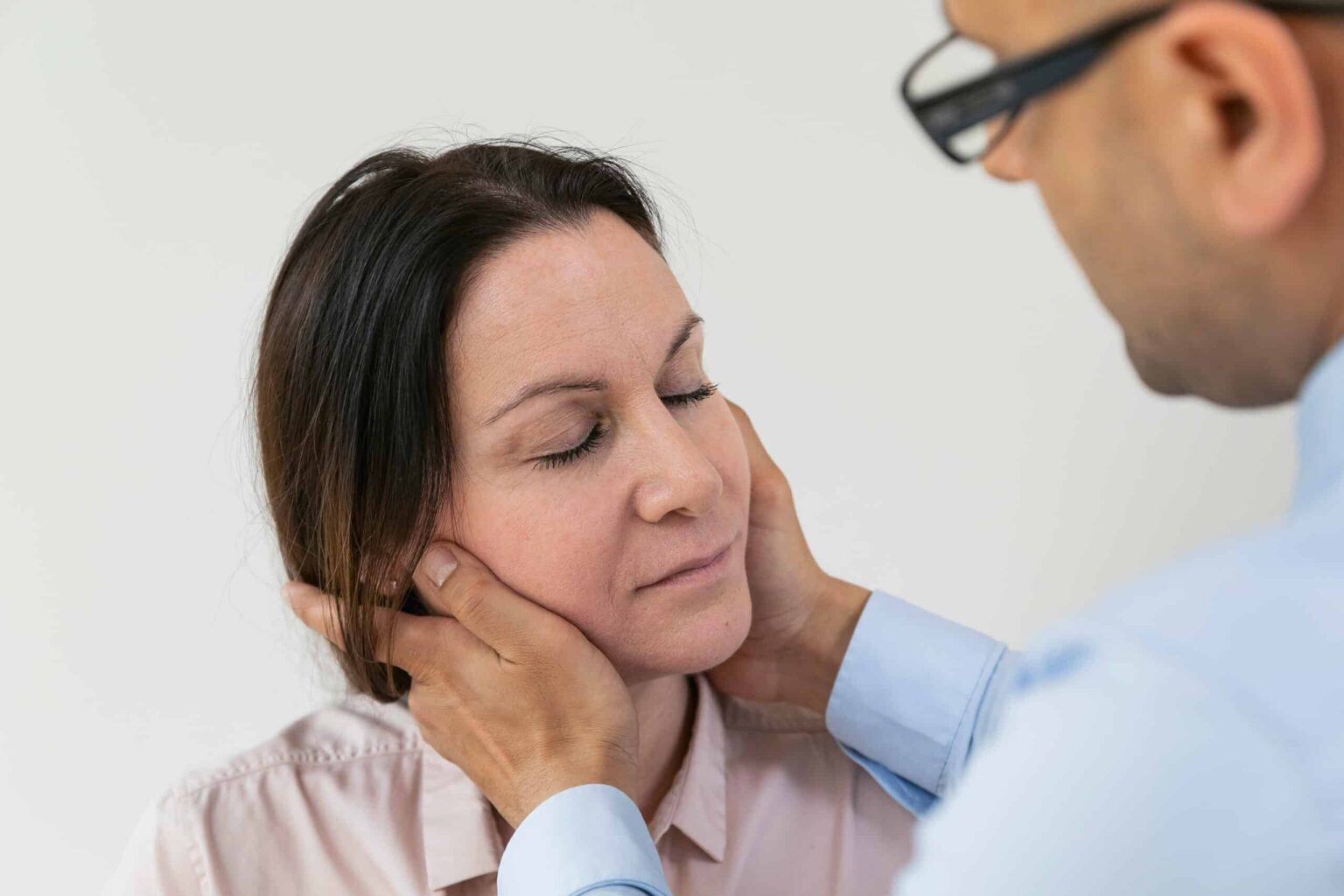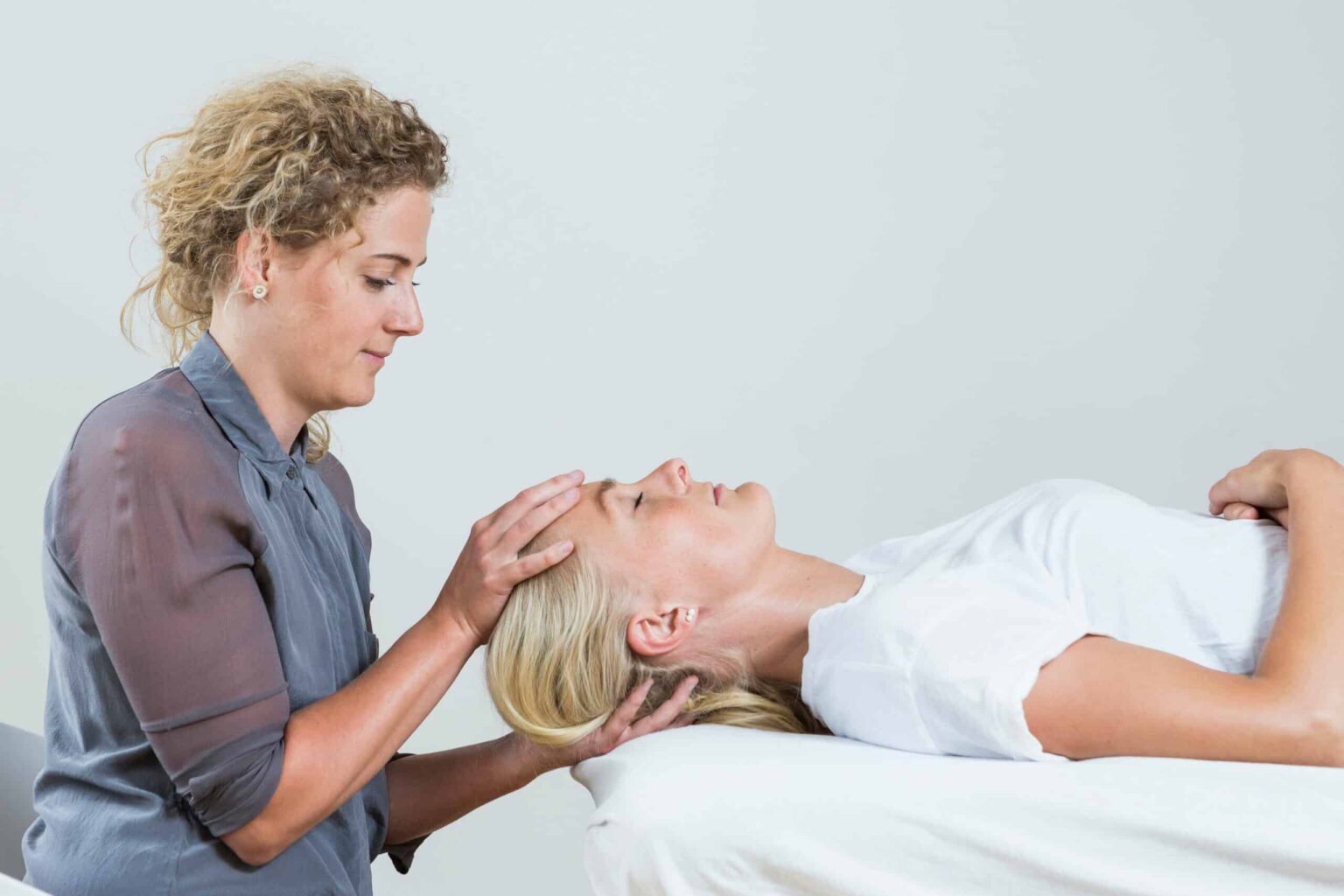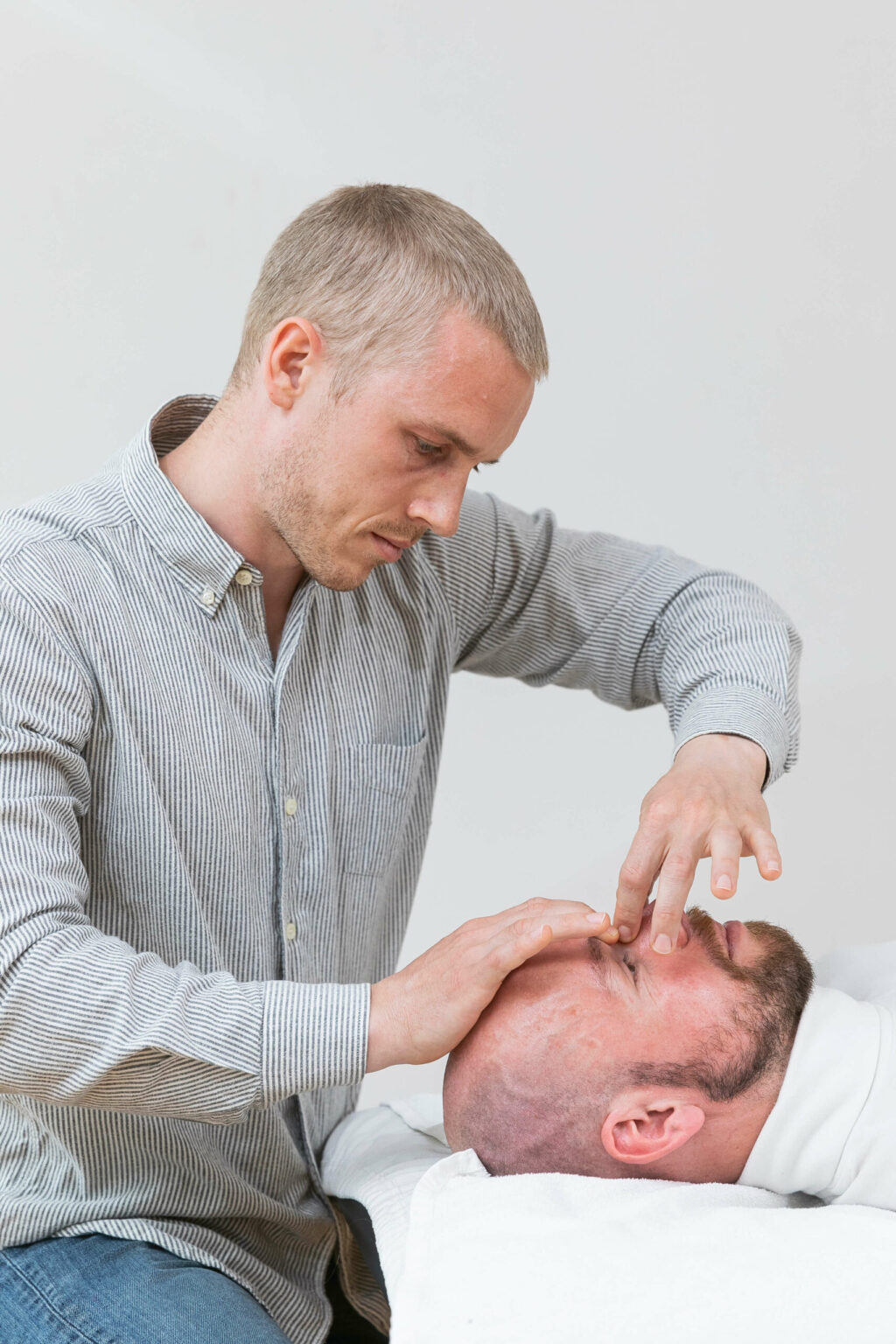We treat
Burning mouth syndrome (BMS)
Learn more about burning mouth syndrome (BMS) on this subpage
What is Burning Mouth Syndrome (BMS)?
Burning mouth syndrome is a persistent or recurring condition with pain from the mouth, primarily described as “burning mouth”.
BMS most often affects middle-aged women, with no known cause. For some, symptoms are sporadic and may come and go throughout the day. For others, symptoms may be mild in the morning and worsen throughout the day, or be present throughout the day. For most people, the condition is persistent from the onset of symptoms, while in rare cases it may go away on its own.
Jump to section [Show]
Symptoms of mouth burn and burning tongue?
BMS is most often presented as a “symptom triad” of; chronic unrelenting pain, altered sense of taste/taste disturbance (dysgeusia) and dry mouth (xerostomia).
Burning mouth syndrome can cause various symptoms. Most often, you will experience symptoms from the mouth, which can be burning or stinging. In addition, some will experience that the tongue is involved, while both the gums, palate and lips can also be painful.
It is common to experience dry mouth, which can also affect one’s sense of taste, leading to a bitter or metallic taste in the mouth. It is not uncommon for some people with BMS to feel as if their mouth has been scalded.

Diagnosing burning mouth syndrome
BMS is diagnosed as a diagnosis of exclusion when no tests or other diseases/conditions can explain the symptoms. Since BMS is a diagnosis of exclusion, a diagnostic criterion is that no dental or medical cause for the symptoms in the oral mucosa can be found.
Causes of burning mouth syndrome
Primary BMS is referred to when no other causes of “burning mouth” can be found, and all tests/examinations are normal. In some cases, secondary BMS is diagnosed when there is an underlying cause for burning mouth symptoms.
Source: Sundhed.dk
Differential diagnoses for burning mouth syndrome or mouth ulcers
In the process of diagnosing burning mouth syndrome, other diagnoses that could be causing burning mouth syndrome will be ruled out. The most common differential diagnoses are:
- Dry mouth (xerostomia)
- Reflux of stomach acid into the mouth (GERD – Gastroesophageal reflux disease)
- Certain types of medication
- Lack of nutrients (vitamins/minerals)
- Psychological factors, anxiety
- Oral hygiene; oral thrush (candidiasis) or tooth/gum infection, stomatitis
Sjøgrens syndrom - Diabetes
Including other known diseases/conditions that can cause heartburn: Herpes simplex virus, multiple sclerosis, fibromyalgia, anemia, chronic tobacco use, neuropathy.

Stress, anxiety and burning mouth syndrome
Parts of the human nervous system are somatic (voluntary) while others are autonomic (automatic, involuntary). The autonomic, involuntary nervous system is divided into two, a sympathetic part and a parasympathetic part.
Based on the fact that BMS patients experience xerostomia (dry mouth), this suggests that there is a shift in the balance (homeostasis) in the autonomic nervous system.
Stress will increase activity in the sympathetic part of the autonomic nervous system, thereby indirectly decreasing the function of the parasympathetic nervous system. The sympathetic (fight/flight, stress) will be given highest priority by the body.
Osteopathic treatment and thinking aims to balance the autonomic nervous system, and can stimulate the function of the parasympathetic nervous system using techniques around the skull. (Shannon M. Campbell, Richard R. Winkelmann, Stevan Walkowski, 2012).
Therefore, there is a neurological connection from structures in the skull to the parasympathetic function of the 7th cranial nerve (n. fascialis) + 9th cranial nerve (n. glossophrayngeus), which is crucial for the production of saliva. Conversely, the upper part of the thoracic spine + neck are relevant for the sympathetic influence on the same area.
Burning mouth syndrome and jaw pain
Patients with burning mouth syndrome often have pain from the temporomandibular joint and the surrounding muscles in the jaw, neck, front/upper neck, and shoulders. The connection between this and BMS is based on hypotheses.
However, osteopathy is effective in relieving and resolving jaw pain and problems.
This is done by looking at which structures influence the temporomandibular joint mechanically, neurologically and vascularly.
Alternative treatment for burning mouth syndrome
Other forms of treatment for BMS include acupuncture and cognitive behavioral therapy. In some countries, infrared irradiation of ganglion cells has also been tried.

Treatment of burning mouth syndrome
Treatment of burning mouth syndrome
Given that BMS has no known cause, patients can often find themselves referred to various specialists, yet fail to receive effective treatment.
Medical treatment focuses on underlying or associated conditions and symptom relief (Gregory P. Bookout., Megan Ladd, Radleh E. Short, 2021). Medications often used include antidepressants, antipsychotics, antiepileptics, and analgesics (painkillers).
Osteopathic treatment of burning mouth syndrome
Osteopathy is a manual approach to the body without the use of surgery and medication, and can be used in the treatment of symptoms of BMS.
Osteopathy can serve as an alternative or supplement if you have either insufficient effect or side effects from medical treatment.
BMS is basically a benign condition, but it impairs the individual’s quality of life.
Cranial Osteopathy and BMS
Research suggests that there is an underlying dysfunction of the autonomic (automated, non-voluntary) nervous system in the oral cavity, based on a sensory dysfunction of the 5th cranial nerve (trigeminal nerve) (Scala A, Checchi L, Montevecchi M, et al., 2003).
This is supported by neuropathic symptoms such as pain, altered taste and dry mouth. There is also research suggesting a reduction in saliva production from the salivary glands (cranial nerve 7, n. fascialis (VII) + cranial nerve 9, n. glossopharyngeus (IX)).
Cranial osteopathy can help normalize neural function and, using manual techniques around the skull, can work with structures that can influence the function of cranial nerves.

I am experiencing mouth burn, what can I do myself?
- Drink plenty of fluids to relieve your heartburn, you can also suck on ice cubes.
- Avoid or minimize acidic/caffeinated drinks, such as carbonated drinks, coffee, and orange juice.
- Avoid alcohol as it can irritate the mucous membranes in the mouth and tongue.
- Avoid strong, spicy foods, including mint and cinnamon.
- Avoid tobacco use.
- Reduce any stress – practice “relaxing” exercise, possibly yoga, mindfulness, etc.
- Try mild toothpaste.
- Using lozenges, chewing gum or similar can provide relief for some, as the mouth is moistened when used.

Often related pain

Jaw joint pain

Vitamin deficiency – spot & control the symptoms

Trigger finger

Brain hemorrhage

Carpal tunnel syndrome

Post-traumatic headache

Sinusitis

